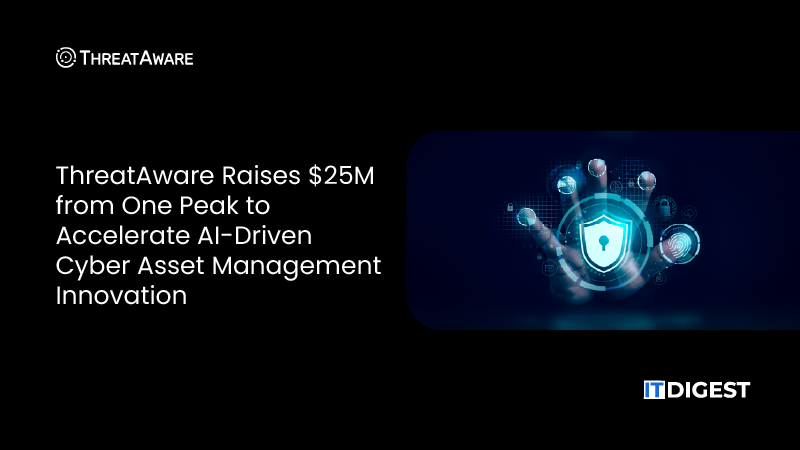Zeni, the finance-technology company behind the AI-driven bookkeeping platform, announced its latest capability called the AI Accounting Agent, fully autonomous in design and meant to make the accounting workflow seamless and automated. According to the company, this agent handles transaction processing, reconciliations, flux or variance analysis, and receipt matching-all with machine-level accuracy. Swapnil Shinde, Zeni’s chief executive, said the technology is “revolutionary” for founders and finance professionals alike. “Our AI Accountant handles the tedious tasks of bookkeeping and accounting so teams can focus on strategic financial planning,” he said.
What the AI Agent Does
The AI Accounting Agent offers several critical capabilities:
- Transaction Processing – It analyzes every transaction, whether that be by vendor, memo, date, amount, and prior patterns, and chooses the appropriate category and class in a matter of seconds. For entries in which it is highly confident, it auto-approves; for entries that are ambiguous, it moves them for human review. Over time, it learns from user feedback to avoid repetitive questions.
- Intelligent Reconciliation – The agent continuously syncs with live bank and credit card balances, triangulates ledger entries with raw statements, and identifies missing, duplicate, or mistimed entries at a line-item level.
- Automated Receipt Matching: The AI automatically scrapes receipts from emails, bill-pay tools, Slack, and more, then matches them with transactions based on vendor, date, and amount-all without users having to upload them. It even continues to “look” for missing receipts daily.
- Continuous Flux Analysis: Operating 24/7, the agent flags abnormal spending patterns, breaks down changes month over month, and explains what caused them by vendor, category, or class-eliminating manual pivot table work or variance reports.
As Zeni underlines, the AI Accountant “never sleeps,” working in the background to keep books updated with better accuracy and with no downtime. Interested businesses can sign up on a waitlist through Zeni’s website to try out the product.
Also Read: FIS introduces its Asset Servicing Management Suite to streamline operational efficiency
Implications for the Fintech Industry
The launch of autonomous AI-driven accounting agent signals a broader trend in fintech: use of AI agents to handle back-office financial tasks, not just for insights but for active execution. This is a natural evolution from analytics-driven fintech tools to more autonomous systems that can act intelligently on finance data.
1. Acceleration of Agent-Based Automation in Finance
The growth in independent, task-solving agentic AI systems within fintech was already on its upward curve. By embedding such agents in bookkeeping, Zeni is pushing the industry further toward reducing manual overhead. This aligns with the growing demand for tools that can not only analyze but execute financial tasks with minimum human input.
2. Scaling Financial Operations for Startups and SMEs
Most small and growing businesses have finance operations as a bottleneck. Reconciliations, journal entries, and variance analysis are all highly labor-intensive. By automating this, Zeni’s agent would free up finance teams for higher-value work, such as forecasting, budgeting, or strategic partnerships that help fintech startups scale up more quickly and efficiently.
3. Competitive Pressure on Traditional Accounting Software
Legacy accounting platforms such as QuickBooks and Xero might find themselves increasingly being challenged by AI-native fintech firms. As Zeni continues to show more reliable, intelligent automation, traditional players will be pressed to innovate or risk falling behind. The ability of an agent to self-learn from corrections gives Zeni a potential edge over rule-based systems.
4. Risk Management and Compliance
Real-time reconciliations and flux analysis mean that problems like duplicate transactions, missing entries, or abnormal spend patterns can be flagged faster. This improves internal controls, reduces risk, and might support stronger compliance practices. In a regulated financial landscape, such automation could become a key differentiator.
Impact on Businesses
• Cost Efficiency & Productivity: By automating routine bookkeeping, businesses save significant amounts of time and decrease labor costs. According to Zeni, its platform already helps customers save up to 70 hours per month. Fewer manual errors mean fewer man-hours expended on corrections.
• Improved Financial Visibility: Finance leaders benefit from improved, real-time financial visibility due to continuous flux monitoring and explanations of variances. This visibility is very important for making decisions, especially for startups or fast-growing firms.
• Strategic Focus: Teams can shift their focus from low-value tactical work to more strategic financial planning, forecasting, and growth initiatives. In effect, the AI agent becomes a finance “teammate” performing operational tasks.
• Onboarding and Adoption Considerations: While the benefits are very compelling, businesses will need to ensure proper integration with their existing systems, such as bank accounts, expense tools, Slack, etc.
They will also need to earn trust in the AI’s decision-making through an initial validation of recommendations. Over time, the learning loop where the agent learns from user corrections will be important to maximizing its value.
Conclusion
Zeni‘s AI Accounting Agent marks a significant leap in the evolution of fintech from mere automation and analytics toward autonomous, closed-loop financial operations. For businesses, especially SMEs and startups, it promises to reduce administrative burden, improve accuracy, and unlock strategic capacity. To the wider fintech industry, it is one more signal that agentic AI is not just hype but a real-world tool reshaping how financial operations will work in these modern times.

































